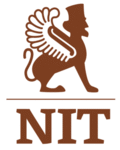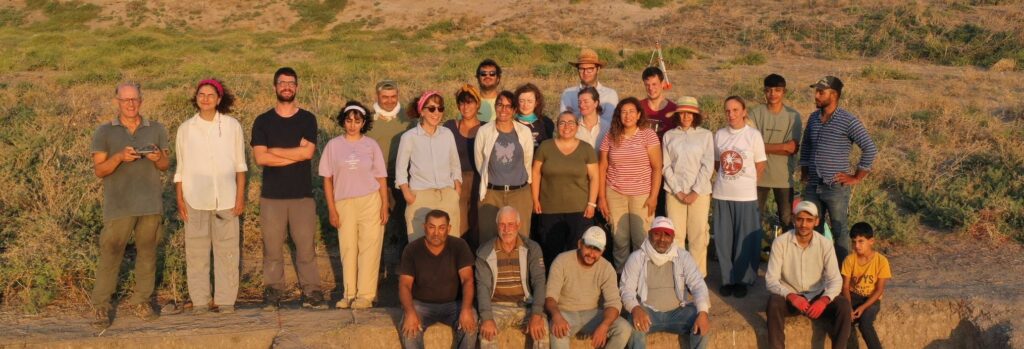
Greetings from a wet December day in Istanbul! The Netherlands Institute in Turkey (NIT) has been actively engaged in a variety of research and educational activities. This newsletter provides an overview of recent projects, including archaeological excavations, conferences, and workshops. It also highlights NIT’s commitment to fostering academic exchange and cultural understanding.
Recent Activities
Tell Kurdu Excavations
The 2024 season of the Tell Kurdu Excavations took place in July, August, and early September this year. The buildings we had used in the 2022 season as our excavation house and workspaces collapsed during the 6 February 2023 earthquakes Therefore, we turned a small plot of land by the site into a dig house compound, helped by a donation of eight living containers from Koç Holding to the Tell Kurdu Excavation Project. Although this is a large project and will probably take us several years to finish, we managed to turn the compound into a lively place at the beginning of the season.
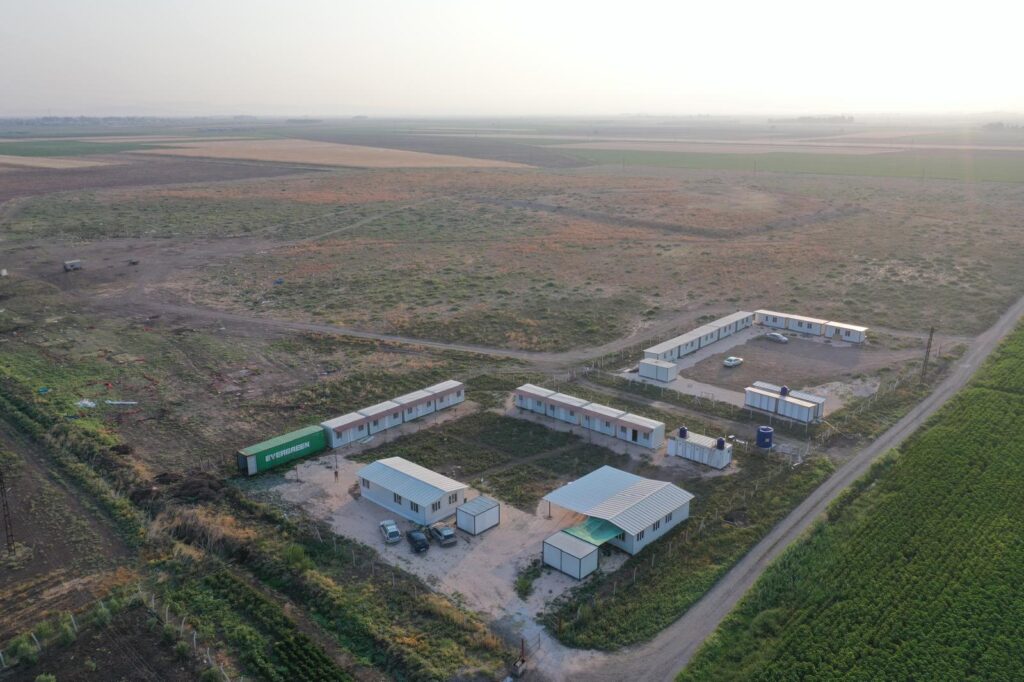
During the excavation season, we worked in three trenches on the top of the mound where we exposed 5th millenium (Ubaid) occupation layers only a few cm below the topsoil. The top of the mound was bulldozed and flattened at some point in the past, making it possible for us to reach the intact archaeological deposits very quickly but losing the data from the later occupation layers. In addition to some structural elements such as corners of buildings, we uncovered some open courtyards that the Tell Kurdu inhabitants regularly used and reused for many decades. We also opened three new trenches on the eastern part of the site. This area appears to be the edge of the 6th millennium (Halaf) settlement. We exposed some streets and the walls of a building. We will continue the excavations at both areas in the upcoming seasons.
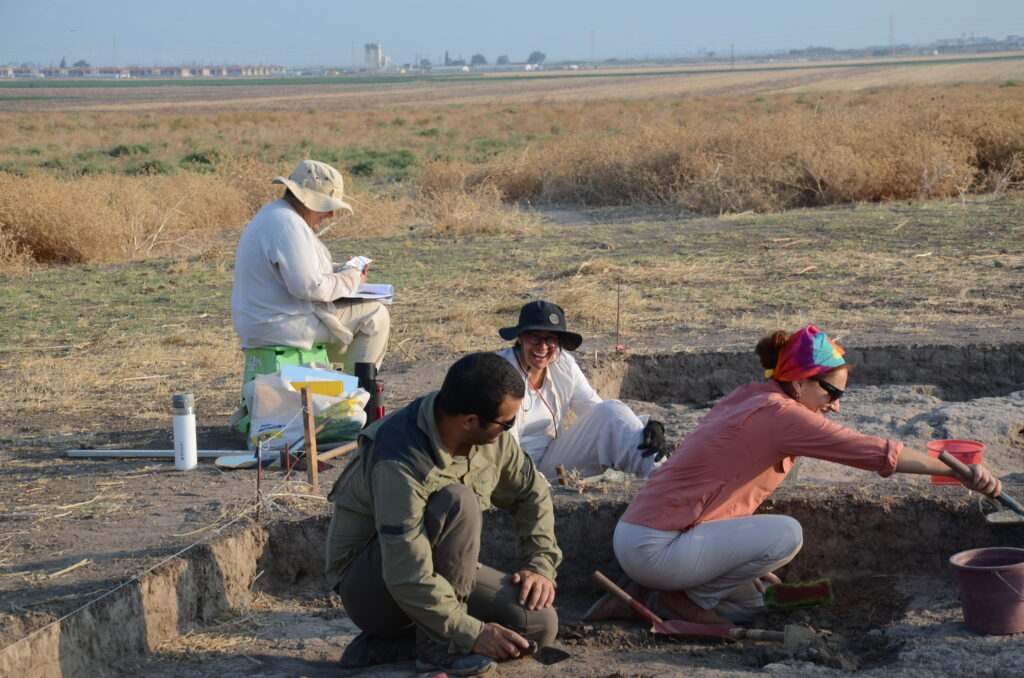
The Tell Kurdu Excavation Project investigates a large settlement site dating from the sixth and fifth millennium BCE in the Amuq Plain in the southern province of Hatay. The excavations are co-directed by Rana Özbal (Koç University) and Fokke Gerritsen (Netherlands Institute in Turkey). The excavations have been ongoing since 2022.
The Dawn of Orientalism: Dutch Scholars and Arabic Classics in Ottoman Istanbul

On 13 September, we organized the lecture entitled The Dawn of Orientalism: Dutch Scholars and Arabic Classics in Ottoman Istanbul by Dr. Peter Webb (Leiden University, Arabic Literature and Culture) to mark the opening of the new Middle Eastern Library at Leiden University Library in 2024.
During his lecture, Dr. Webb focused on the classic Arabic text Levinus Warner, Dutch consul in Istanbul from 1655-1665 acquired from Ottoman Istanbul. Levinus Warner had translated the book into Latin to make it accessible to the European readers, but the classic Arabic text which Warner read and his pioneering translation have sadly been forgotten and the books remained in Leiden University Library shelves un-read for at least two centuries. Dr. Webb explored why this book was very famous back in the day, why the Golden-Age Leiden-trained Arabist was so interested in it, and how his translation efforts fared.
Necropoleis Research Network Annual Meeting VII

The 7th Annual Meeting of the Necropoleis Research Network (NRN) recently concluded in Istanbul, Turkey. This three-day event brought together experts in mortuary archaeology to delve into the funerary practices of the Eastern Mediterranean and Near East. Participants explored diverse topics, including the theoretical and methodological approaches to analyzing burial rituals, mortuary practices in rural and remote landscapes, and the treatment of the dead in Late Antiquity and the Byzantine Era. Additionally, the conference featured discussions on the latest archaeological discoveries and ongoing fieldwork in Anatolia.
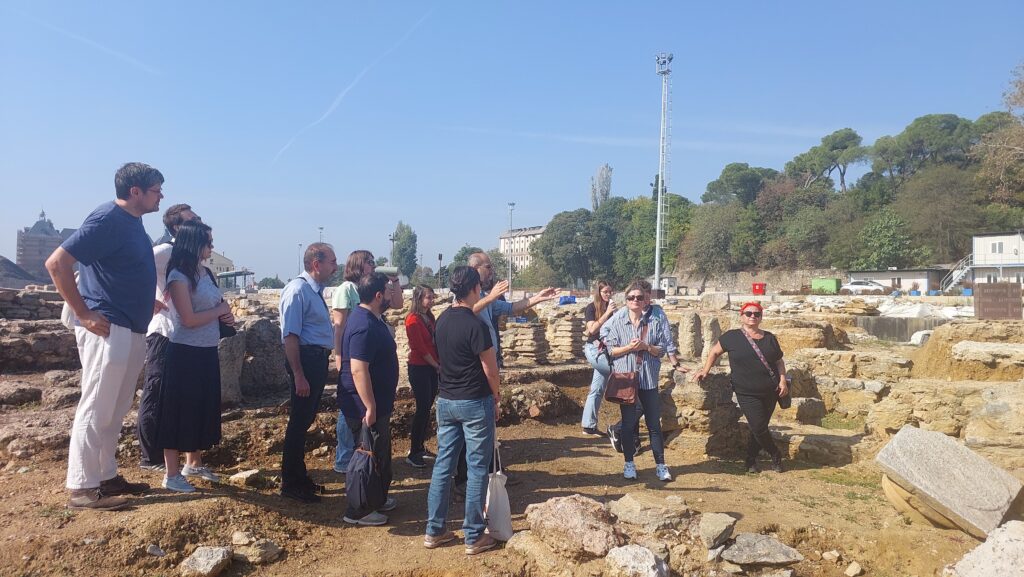
During the final day, we organized guided tours to the Haydarpaşa Archaeological Excavation in Kadıköy and the Feriköy Protestant Cemetery in Şişli for the presenters and the organizers. These excursions offered a unique opportunity to explore Istanbul’s rich cultural heritage and gain firsthand insights into different funerary traditions.
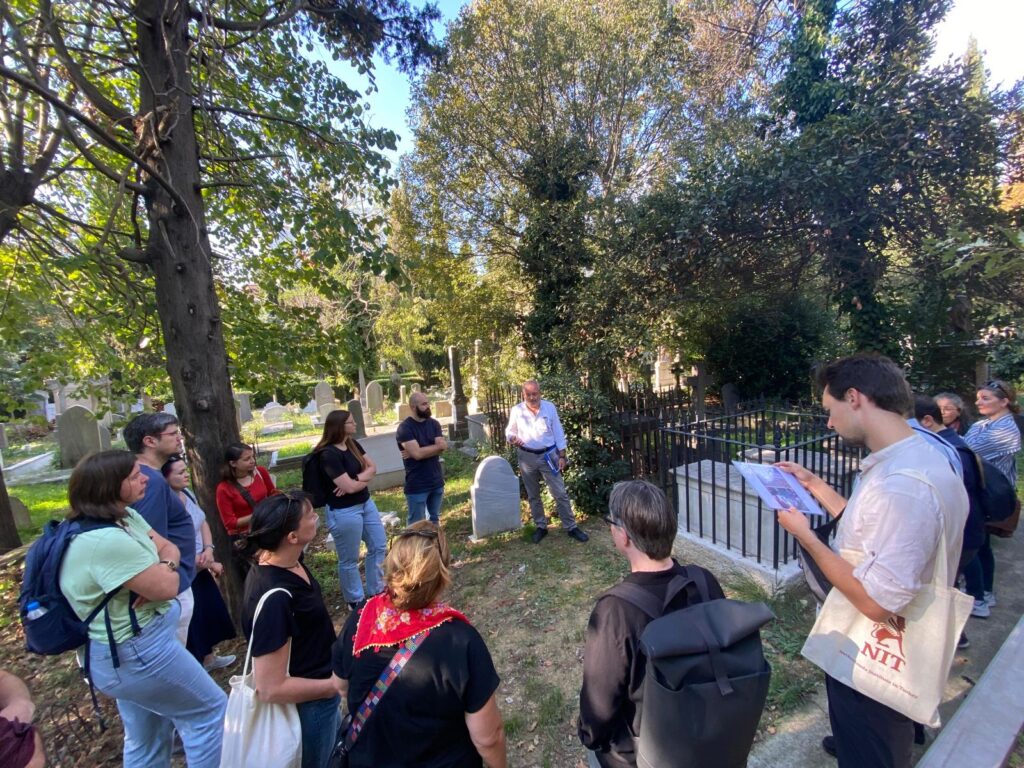
Mediterranean Port Cities: Shared Heritage, Shared Challenges for Urban Sustainability Symposium

The Mediterranean Port Cities: Shared Heritage, Shared Challenges for Urban Sustainability Symposium, held online on October 11, 2024, explored the rich history, current challenges, and future potential of port cities around the Mediterranean. The event, organized as part of the 2024 Urban Heritage Lab, brought together experts to discuss the unique characteristics and shared heritage of historic port cities.
The symposium delved into the historical development of port cities, highlighting their role as centers of trade, culture, and exchange. Participants explored the heritage of port cities like Istanbul, Thessaloniki, and Izmir, discussing the impact of maritime trade on their urban fabric and cultural identity.
A significant focus of the symposium was on the challenges and opportunities facing port cities in the 21st century. Experts discussed the impact of climate change, urbanization, and globalization on these historic environments. The symposium explored various strategies for the regeneration and revitalization of port cities, including sustainable urban development, heritage conservation, and innovative design approaches. By examining the past, present, and future of Mediterranean port cities, the symposium aimed to foster a deeper understanding of their unique heritage and promote sustainable urban development practices.
From Miklagard to Istanbul: Moving the Senses

On October 25, 2024, NIT organized the From Miklagard to Istanbul: Moving the Senses event that provided a lens into the rich and multifaceted history of Istanbul. This event featured insightful lectures by Prof. Ayhan Kaya and Prof. Helena Bodin, followed by a stimulating roundtable discussion moderated by Dr. Lora Sariaslan.
Prof. Kaya’s presentation, “Finding refuge in Istanbul: From the Vikings onward,” explored the city’s long history as a haven for diverse peoples. From the Viking era to the Ottoman Empire, Istanbul has welcomed migrants and refugees from various cultures and religions. The city’s unique position as a crossroads of civilizations has shaped its identity and contributed to its vibrant culture.
Prof. Bodin’s talk, “Seclusion versus accessibility: The harems of Constantinople in stories by Elsa Lindberg-Dovlette,” offered a glimpse into the lives of women within Istanbul’s harems. By analyzing the works of Swedish writer Elsa Lindberg-Dovlette, who lived in a Constantinople harem in the early 20th century, Bodin explored the complex dynamics of gender, culture, and identity within the harem.
NIT Urban Heritage Lab 2024: Historic Ports, Future Cities Course


The fourth edition of the NIT Urban Heritage Lab Autumn course, Historic Ports, Future Cities: Cultural Heritage for Sustainable Urban Development started in October 2024 with the Mediterranean Port Cities: Shared Heritage, Shared Challenges for Urban Sustainability Symposium. Just like in previous years, the 20 participants from a wide variety of disciplines such as architecture, urban planning, archaeology, art, history, sociology, literature, and anthropology have come together to develop new projects for the revalorization of the historic port city of Izmir. Apart from the Mediterranean Port Cities Symposium, the participants have been following online lectures and case study presentations on the revalorization of the historic urban landscape of port cities.
During the field trip to Izmir on 17-19 October, the participants had the opportunity to come together and start working on their final projects that focus on the revalorization of the historic port city of Izmir by focusing on four different areas connected to the port city heritage.
The course participants will present their final projects in a public meeting on December 13, 2024. These proposals will eventually be published in the fourth volume of the NIT Urban Heritage Lab publication series of the Netherlands Institute in Turkey next year.


| 1 November 2024 16.30-17.30 | Historic Ports Future Cities | 568 Yıllık Miras Haliç Tersanesi by Sinem Dedetaş (Mayor of Üsküdar and the General Director of Şehir hatları Inc. (2019-2023) |
| 15 November 2024 16.30-18.30 | Port City Heritage and Public Engagement Projects Coastal Clear: A project created to increase the awareness about climatic threats facing the coast of Alexandria by Panseh Ibrahim and Mirette Abdelnour (Bibliotheca Alexandrina Antiquities Museum) How to make the most of the Danube heritage? Accessibility strategies by Alexandra Mocioiu, Alexandru Roșu and Cezara Matei (Front la Dunăre NGO) |
| 29 November 2024 16.30-18.30 | Water Values Past, Present and Future: How to bring the history and heritage of water management to the design of sustainable futures? by Carola Hein (Leiden-Delft-Erasmus Universities PortCityFutures) |
| 13 December 2024 16.30-19.00 | Historic Ports, Future Cities: Proposals for Revalorization of Izmir’s Port City Heritage by Historic Ports, Future Cities Course Participants |
Apply for NIT Fellowships for Spring 2025

NIT offers two types of fellowships at the Netherlands Institute in Turkey (Istanbul) in the spring of 2025. Please go here for more information about the fellowships and the application form.
Residential Fellowships
NIT offers four residential fellowships for the spring of 2025. This fellowship offer includes free accommodation in an apartment near the institute and 24/7 access to the NIT library for four weeks.
Deadline for applications: 3 January 2025
Fellowship periods
Period 1: 29 January – 26 February 2025 (2 fellowships)
Period 2: 27 February – 27 March 2025 (2 fellowships)
Non-Residential Fellowships
NIT offers two non-residential fellowships during the spring of 2025. This fellowship includes an allowance of 400 euros for travel and living expenses and 24/7 access to the NIT library.
Deadline for applications: 3 January 2025
Fellowship period
One month between January 30 and June 30, 2025.
NIT Autumn 2024 Fellows
Every semester, NIT hosts fellows who conduct research related to the scope of the institute at the library. We hosted 6 fellows who worked on a variety of topics in their fields of research in the autumn of 2024.
Sanne de Jong (PhD Candidate at Radboud University) was at the NIT library working on her project Disastrous natural and political climates – the effects of volcanic-induced climate anomalies in relation to political unrest and resilience in the eastern Roman Empire (6th century CE). Her project investigates the societal impacts of volcanic-induced climate change on the Roman Empire, particularly focusing on the eastern Roman Empire following the eruptions of 536 and 540 CE.


Rik J. Janssen (PhD student at Edinburgh University) stayed at the NIT library to get a headstart to his PhD project entitled Sultan Mahmud II ‘Pulls a Long Bow’: European Observations of Archery in the Ottoman Empire. His project investigates the revival of archery in the Ottoman Empire during the early 19th century, particularly focusing on the reign of Sultan Mahmud II.
Thomas Faessen (PhD student at University of Groningen) is currently at NIT, working on his project Putting Power into Practice: Cultural interactions in the succeeding Dynasties ruling Persia. His PhD research aims to explore the cultural continuity and interaction between the Achaemenid, Argead, and Seleucid dynasties. By examining the practical implementation of dynastic functions such as succession, rituals, and military affairs, he seeks to understand how these dynasties shaped and were shaped by their cultural contexts.
Janset Nil Genç (rMA student at Leiden University) is one of our non-residential fellows for this semester. Her project Life after Migration: Experiences of Circassian muhajir families in the Ottoman Empire aims to understand how Circassian muhajirs experienced life in the Ottoman Empire in the second half of the late nineteenth century and early twentieth century.
Ahmet Can Karapınar (M.Sc. student at Maastricht University) is another non-residential fellow who has just started his research at the NIT library. His project Divided Narratives of the Divided Island: The Construction of Legitimacy Through the Historical Narratives in the Cyprus Question examines how Cyprus’s Greek and Turkish communities use historical narratives and collective memory to shape their foreign policy positions.
Fatma Tanış (PostDoc at TUDelft) was at NIT library to conduct research on her project École Sedad Hakkı Eldem. Her research project explores the role of the Fine Arts Academy in Istanbul in shaping architectural education and practice in Turkey.
Upcoming Activities
NIT day in Nijmegen

You are invited to the NIT Day in Nijmegen on December 6, 2024. On this day you can find out about the activities and programs of the Netherlands Institute in Turkey. You can listen to presentations by staff and fellows, hear from former fellows about their experiences in Istanbul and meet or reconnect with NIT staff and alumni. You can see the details of the program here.
Anatolian Chalcolithic Workshop
The first meeting of the new initiative of the Anatolian Chalcolithic Workshop will be a one-day online event on January 10, 2025. The Anatolian Chalcolithic Workshop is a new initiative that aims to offer a platform for dialogue and exchange for all those interested in scientific research on the Chalcolithic Period in Anatolia. You can register for the event here. The workshop program will be announced on NIT’s website soon.
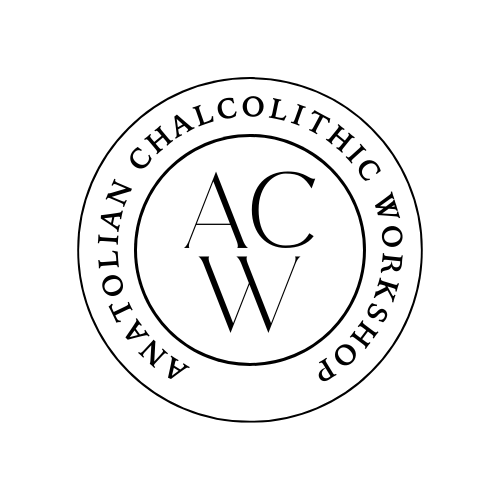
Exhibition The Phrygian Highlands through the Lens of Emilie Haspels

Emilie Haspels (1894-1980) was a Dutch archaeologist that conducted pioneering research in the Phrygian Highlands of Central Anatolia during the 1930s through 1950s. A selection of the many beautiful photos that she made during her fieldwork, of rock-cut monuments, landscapes, villages and people, will be shown in an exhibition at the archaeology museum in Eskişehir. The exhibition is curated by Charlie Smid (VU Amsterdam) and Wolter Braamhorst (TVCulture) and developed in a partnership of NIT, the Netherlands Embassy in Ankara and Allard Pierson Museum. After Eskişehir, the exhibition will travel to museums in Afyon and Kütahya.
Water Memories Walk

The Water Memories project, supported by the Connected World Social Impact Award from Vrije Universiteit Amsterdam, aims to highlight Istanbul’s rich water heritage. Through a walking app, the project will engage the public and increase awareness of the city’s historical water systems. Through a collaboration between Vrije Universiteit Amsterdam, NIT, Radboud University, and the Hrant Dink Foundation we finalized the route and the information of the walk and we are now at the final steps of the launch. We aim to launch the Water Memories Walk in February 2025 on KarDes Mobile App.
New Publications from NIT Staff
Constantinople through the Ages. The Visible City from Its Foundation to Contemporary Istanbul

You are cordially invited to the book launch (in Dutch) of Constantinople through the Ages. The Visible City from its Foundation to Contemporary Istanbul, edited by Diederik Burgersdijk, Fokke Gerritsen and Willemijn Waal, on December 11, at 8:00 PM at Spui25 in Amsterdam.
For the program and for registration please visit the webpage of Spui25. The event can also be followed there via a livestream. The book announcement on the publisher’s website can be found here.
Anatolica
The editorial process for Anatolica 50 is finalized and the issue is in print, scheduled to appear at the end of 2024. Submissions for volume 51 to be published in the fall of 2025 can be submitted until December 1, 2024. Anatolica is published by Peeters Publishers under the aegis of the Netherlands Institute in Turkey; the editorial team is Fokke Gerritsen (editor in chief), Gülşah Günata and Aysel Arslan (assistant editors). Please go here for details about publishing in Anatolica.
